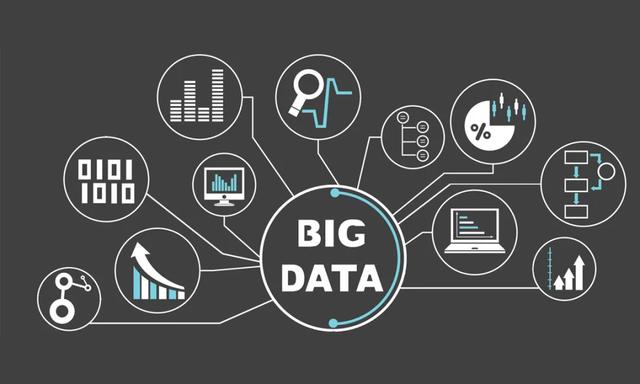Forbes: 5 technology trends for the development of the insurance industry in 2020, from AI to blockchain
The global insurance market is undergoing technological changes. Digital priority business models are the direction that traditional insurance companies and insurance technology companies value more than ever. They test new business models and new technologies to drive revenue streams.
Most importantly, emerging technology trends can reduce operating costs by preventing fraud and automating the operation of services, thereby giving insurance agents more time to acquire and maintain business.
This is a new world, but it is not as terrible as you think. The following are the 5 major technological trends that will overturn the insurance industry and will become better and better.
The rise of insurance technology
Insurance technology has a poor reputation in certain corners of the insurance industry because it has caused great changes in the already stable industry. However, insurance technology can also help modernize traditional insurance companies.
- A week in review | After the halving of BCH and BSV, is the market still confident about Bitcoin halving?
- What is the relationship between blockchain and artificial intelligence, big data and the Internet of Things, may wish to look at this article
- Cao Yin: Can Tezos open a new DeFi situation with tzBTC?

Broadly speaking, insurance technology refers to the use of innovative technology to save and improve efficiency for insurance shoppers, while changing the current model used by most carriers. Insurtech companies usually deal with complex data, so they will not rate people based on the data carrier, but on the basic level of grouping people by risk.
Insurance technology companies not only provide better pricing models, but also use artificial intelligence (AI) to customize packages and complete the coverage process without the need for a broker. As I wrote before, many insurance technology startups have partnered with traditional insurance companies as specialized partners rather than competitors.
Telematics equipment
One way consumers use new technologies to get rid of group risks and save money is to install telematics equipment. The telematics device is installed in the car's on-board diagnostic port (OBD II port), which is located under the car's steering wheel.
Many newer cars already have telematics equipment built in. After installing the monitor, the telematics equipment will begin to track driving habits and pass them on to the insurance company. The company can also provide consumers with a copy of the report to help them improve their savings skills and improve their driving skills.
Although some people may be surprised by their poor ratings and their ratings have increased after installing the equipment in their cars, others may see premiums drop.

social media
Social media has become a popular way for insurance agents and operators to establish contact with consumers. Agents of all sizes, including Geico, have entered LinkedIn, Facebook and Instagram. Some insurance professionals can use video apps to get creative without spending a dime, or make a distinctive video to attract people ’s attention.
Most agents I work with have seen the value of using education to better serve existing customers and using social media to connect with potential customers. Operators can even use social media to provide insurance quotes online using Facebook forms and Facebook Messenger.
Robotic Process Automation (RPA)
You may have heard that robots will soon be able to perform tasks for humans, so who is unimpressed? At least in the insurance industry, this is much less than drone taking over our work.
I hope RPA can simply automate transactions and processes, such as claims processing and document verification. Consumers can see more self-service options, and as time goes on, this will reduce the need for background work.

On the other hand, the demand for agents with data analysis and machine learning skills may be greater. Deloitte said that robotics and cognitive automation (RCA) will promote human-machine collaboration by automating repetitive tasks and improving the quality of work.
Artificial Intelligence (AI)
Artificial intelligence can destroy the insurance industry more than any other technology, because operators rely on data, which is the basis of artificial intelligence. The more successfully an operator masters this new technology, the greater its chance of survival. However, according to Deloitte data, the insurance industry's investment in artificial intelligence in 2017 only lags behind the industry level of 1.33%. In fact, the insurance industry may have difficulty catching up with the AI movement, which makes insurance technology startups so successful.
Insurtech just fills the gap in a culture that has adapted to automation and fast, accurate service. For example, Deloitte covers a property and peer-to-peer insurance company that uses AI-driven claims analysis. According to reports, 18 anti-fraud algorithms were processed using image and video claims information from consumers.

Blockchain
Many people are still confused about the concept of blockchain and one of the papers explains that it is actually a record of digital events shared between parties, which can only be updated under the consensus of most participants According to reports, the information on it will never be erased. This is important because when there is a value deviation between the parties, the blockchain may be more convenient for extracting value from the business model.
Similarly, blockchain may change consumer expectations for faster service. Blockchain technology can help improve risk assessment and fraud prevention, and most importantly, I believe this new technology is expected to reduce costs while maintaining customer satisfaction.
The future of insurance technology may be priced based on personal data rather than average statistics based on demographics. For example, for health insurance, there may be monitors like Fitbits to predict risk.
The original text comes from the English version of Forbes and was compiled by the Bluemountain Labs team. It is abridged. The English copyright belongs to the original author. Please contact the compiler for reprint in Chinese.
We will continue to update Blocking; if you have any questions or suggestions, please contact us!
Was this article helpful?
93 out of 132 found this helpful
Related articles
- Interpretation: The central government first mentions the attributes of data production elements, and privacy computing will usher in opportunities
- It is only 32 days from the halving of BTC. BCH and BSV have completed the halving in succession. Does the reduction in production affect the geometry?
- Report: Who is the most likely currency to become Bitcoin and Ethereum?
- Why did the mining pool business become the "sweet bun" of the exchange?
- 312 plunge paved the way for new funds to enter the market, a large number of investors "bottom" Bitcoin
- The number of Bitcoin whales reached a new high in two years, similar to the previous half
- Public Opinion of "House N" Fermented, Bithumb Faces Pressure to Remove Monero






